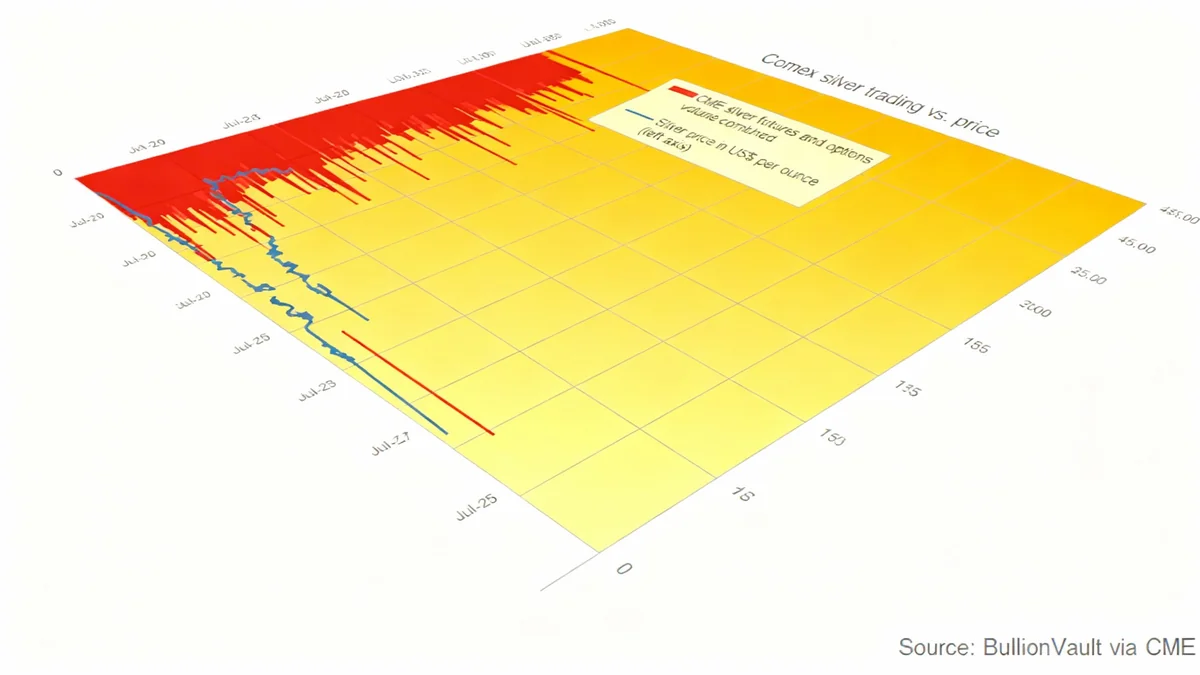Technology stocks experienced significant declines in afternoon trading today. Renewed trade tensions between the United States and China, coupled with disappointing earnings reports from major tech companies, weighed heavily on investor sentiment. This combination created a broad sense of worry across the market.
Key Takeaways
- New U.S. restrictions on Chinese exports using American software are under consideration.
- Texas Instruments' weak earnings and forecast dragged down the semiconductor sector.
- Netflix shares fell after missing earnings targets.
- Unity, Palantir Technologies, and Upland Software all saw significant stock drops.
New Trade Restrictions Spark Market Concerns
A key driver for today's market downturn was news that the White House is considering new restrictions on Chinese exports. These restrictions would specifically target products that use U.S. software. Such a move could significantly impact many technology companies with international operations and supply chains.
The uncertainty surrounding escalating trade tensions immediately created a broad sense of worry among investors. This type of geopolitical risk often leads to volatility in global markets, particularly in sectors heavily reliant on international trade.
Trade Tensions Background
Trade relations between the U.S. and China have seen periods of calm and escalation. Previous tariff threats and subsequent de-escalations have caused sharp market reactions. Investors closely monitor any statements or policy changes related to international trade, as they can directly impact corporate revenues and supply chain stability for major tech players.
Semiconductor Sector Hit by Texas Instruments Performance
Shares of semiconductor giant Texas Instruments dropped by 6% today. This decline followed the release of its latest earnings report and future revenue forecast, both of which came in weaker than expected. This performance is a significant concern for the overall health of the technology industry, as semiconductors are fundamental components in almost all electronic devices.
The poor performance from Texas Instruments immediately dragged down the entire semiconductor sector. Other major chipmakers, including Advanced Micro Devices (AMD) and Micron Technology, also experienced significant declines in their stock prices as investors reacted to the sector-wide implications.
"The semiconductor industry is often seen as a bellwether for the broader tech market. When a leader like Texas Instruments falters, it sends ripples across the entire sector," a market analyst observed.
Netflix Earnings Miss Adds to Tech Woes
Compounding the bad news, streaming service Netflix saw its stock slump by 9%. The company missed its earnings targets, partly attributing the shortfall to a tax dispute in Brazil. This individual company underperformance, from a highly visible consumer tech brand, added to the negative sentiment already prevalent in the market.
The combined effect of renewed trade war fears and direct evidence of underperformance from influential companies in the technology sector was enough to push the major market indexes lower across the board.
Market Volatility
- Upland Software has experienced 63 moves greater than 5% over the last year.
- Today's market reaction suggests news is meaningful but not fundamentally altering business perception for Upland.
Individual Stock Declines: Unity, Palantir, Upland
Among the specific stocks impacted by today's market movements were several prominent technology companies. Design software company Unity (NYSE: U) fell by 3.8%. Data analytics firm Palantir Technologies (NASDAQ: PLTR) saw its shares decline by 5.2%. Marketing software company Upland Software (NASDAQ: UPLD) fell by 5.4%.
Upland Software, in particular, has demonstrated significant stock price volatility. The company's shares are down 52.9% since the beginning of the year. Trading at $2.11 per share, Upland is currently 60.2% below its 52-week high of $5.31, which was recorded in December 2024.
Upland Software's Recent Price Swings
Just nine days prior, Upland Software's stock gained 3%. That rally occurred when former President Donald Trump eased concerns over escalating trade tensions with China. A post on Truth Social, where Trump suggested the trade conflict would not worsen, calmed markets that had been rattled by earlier tariff threats.
This shift in tone provided significant relief to investors, who had driven a sharp sell-off the previous Friday due to fears of higher tariffs. Technology companies with significant international supply chains and sales, such as AMD and Nvidia, led that market rally, with their shares climbing 4.2% and 3.4%, respectively. This highlights the sensitivity of tech stocks to trade rhetoric.
Generative AI Impact
While today's news focused on trade and earnings, the long-term impact of generative AI on large corporations remains a significant theme. Companies like Nvidia and AMD, key players in AI hardware, are trading near all-time highs, reflecting ongoing investor confidence in the AI revolution, despite short-term market fluctuations.
Investor Outlook Amid Volatility
The stock market often overreacts to breaking news. Significant price drops, while concerning in the short term, can sometimes present opportunities for investors to acquire high-quality stocks at lower valuations. However, the current environment of trade uncertainty and mixed earnings reports calls for careful consideration.
Investors are advised to monitor ongoing geopolitical developments and company-specific performance reports closely. The technology sector, while prone to volatility, also offers significant growth potential driven by innovation. Understanding the underlying factors causing these market movements is crucial for informed decision-making.
The broader market indexes, including the S&P 500 and the Dow Jones Industrial Average, also saw substantial gains during periods of trade de-escalation, reflecting widespread optimism. Conversely, fears of a damaging trade war can quickly reverse this optimism, as seen today.





